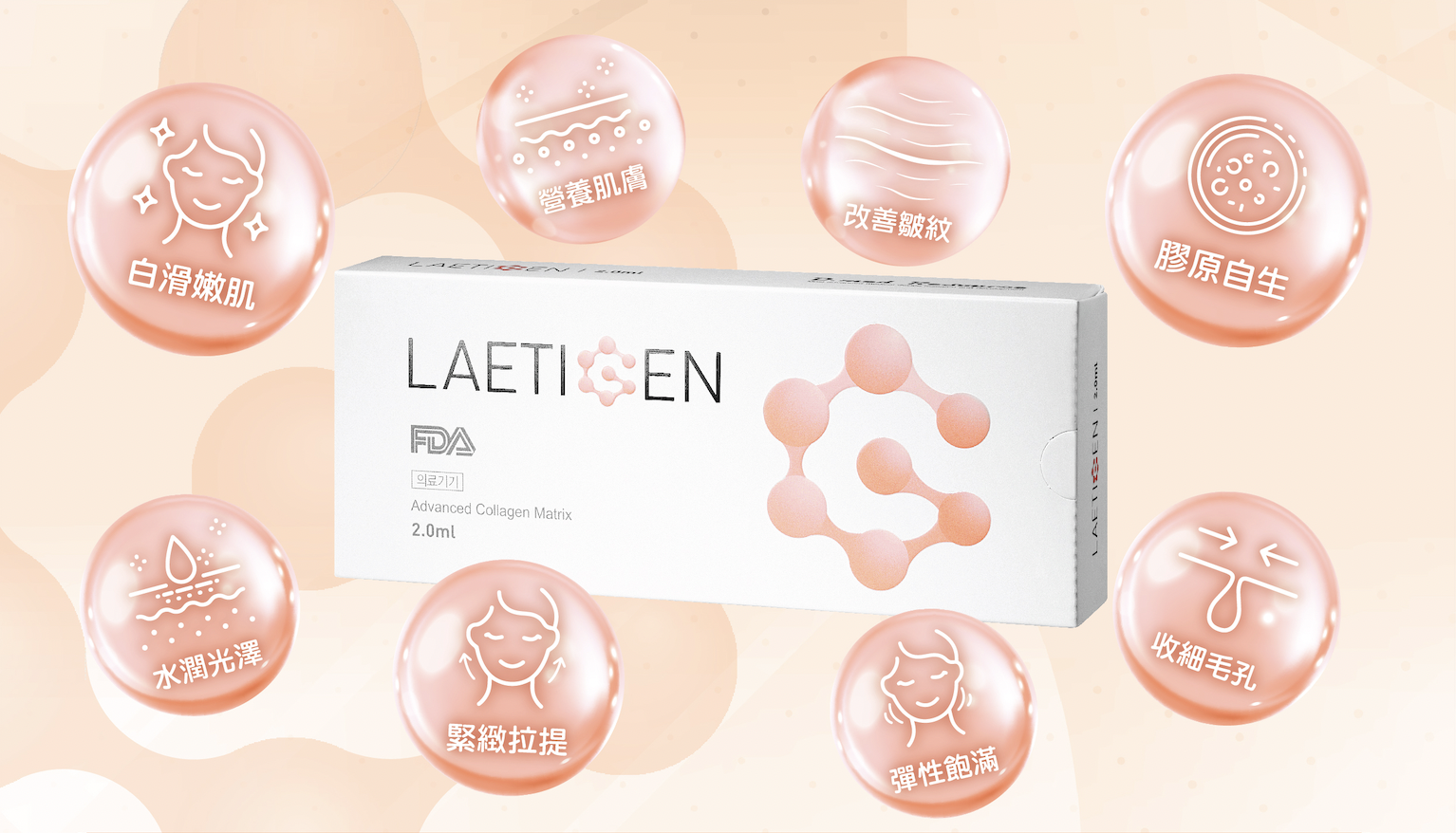What is Laetigen, Korea’s latest collagen injection?
Add Your Heading Text Here

TL;DR
- Laetigen is a Korean injectable made of 99.9% hydrolysed Type 1 collagen, designed to support collagen regeneration, improve hydration, and firm the skin.
- While Laetigen may indirectly accelerate the process of collagen synthesis, it is not a quick fix and results are not instant.
- This concept is not new and already seen in existing collagen injectables.
Lately, Laetigen—a collagen injection from Korea—has been trending in conversations around anti-ageing and skin rejuvenation.
Touted for its ability to deliver real collagen directly into the skin, Laetigen allegedly promises smoother, firmer, and more hydrated skin with less downtime compared to traditional collagen stimulators.
But does it live up to its hype? Let’s take a closer look.
What Is Laetigen and How Does It Work?
Laetigen is a high-purity collagen-based injectable developed in South Korea. It is also referred to as ‘Retizen’ in some clinics, which may cause some initial confusion, but it refers to the same formulation.
Laetigen contains 99.9% pure hydrolysed Type 1 collagen and is designed to be injected directly into the dermal layer.
According to ID Hospital and other clinics in Seoul, such as Medicube and VOS Dermatology, Laetigen:
- Contains 100% purified, biocompatible collagen.
- It is FDA-approved and MFDS-certified (Korea’s Ministry of Food and Drug Safety).
- Uses a proprietary purification and sterilisation process, including high-pressure steam sterilisation and a multi-stage filtration system, to ensure safety and minimise immune response.
- It is designed to serve as a scaffold, encouraging your skin’s natural collagen regeneration.
Type 1 collagen is the most abundant type of collagen found in the skin and is vital for maintaining our skin’s structure, hydration, and elasticity. As we age, our collagen production slows down, leading to the development of fine lines, sagging, and a dull appearance.
The idea behind Laetigen is to replenish the skin’s intercellular matrix with external collagen, thereby supporting regeneration from within.
Is Collagen Production Immediate?
Now, here’s where I have to pop the bubble gently—there’s no such thing as “instant” collagen production.
Despite marketing claims of rapid regeneration, Laetigen (and any collagen-based injectable) still depends on your skin’s natural healing processes. Injected collagen, even in a highly purified form, remains foreign to the body. It cannot simply “patch” itself into the skin’s existing collagen network.
Why? Because our collagen fibres are built in a particular triple-helix formation by fibroblasts, our skin’s repair cells. External collagen can serve as a scaffold or a signal to these cells; however, the integration of real collagen requires time and biological cooperation.
Also Read: Are Collagen Supplements Effective for Anti-Ageing?
That said, Laetigen does contain hydrolysed collagen—broken-down peptide components—which may function like Lego blocks to support your skin’s collagen-building efforts.
This is not a new concept; similar approaches are used in other collagen injectables which utilise amino acids to stimulate collagen synthesis.
In other words, while Laetigen may indirectly accelerate the process of collagen regeneration, it isn’t a magical instant fix. Skin remodelling usually occurs over several weeks to months.
Is Laetigen The Same As Other Skin Boosters?
Is Laetigen Safe?
Laetigen is classified as a Class 4 medical device by the Korean MFDS, indicating its adherence to stringent safety standards for therapeutic use.
Here’s a question I often get asked when a treatment involves foreign substances: “Is it safe if it’s not my collagen?”
Collagen-based injectables are generally considered safe. The production process is designed to eliminate immunogenic impurities and pathogens. Because the collagen is hydrolysed and purified, the risk of rejection or inflammation is significantly reduced.
However, as with all injectables, technique matters. A qualified practitioner should continually assess suitability, injection depth, and manage expectations. Redness or mild swelling may occur, but typically resolves within a few days.
Who Is Laetigen For?
Laetigen is ideal for individuals looking for a non-surgical solution to:
- Early signs of ageing (fine lines, loss of firmness)
- Dehydrated or rough skin texture
- Post-acne scarring
- Dull, tired-looking skin
- Around the forehead, under the eyes, cheeks and nasolabial folds
It can be particularly appealing for those who have not responded well to traditional collagen-stimulating treatments or who want to try something more biologically active.
As with all skin boosters, Laetigen works best as part of a comprehensive treatment plan that includes sun protection, healthy lifestyle habits, and regular professional skincare.
Don't Be Fooled by Fast Promises
In aesthetics, anything that sounds too good to be true usually is. While Laetigen is exciting in its formulation and concept, it doesn’t override the fundamentals of skin biology.
Yes, it may help support and guide your skin toward better collagen production. Yes, it can enhance hydration and elasticity. But real, lasting results are always gradual and require consistency.
Laetigen is not a “one and done” injection—nor should it be seen as a replacement for your skin’s natural processes. Contact us today for more information.
